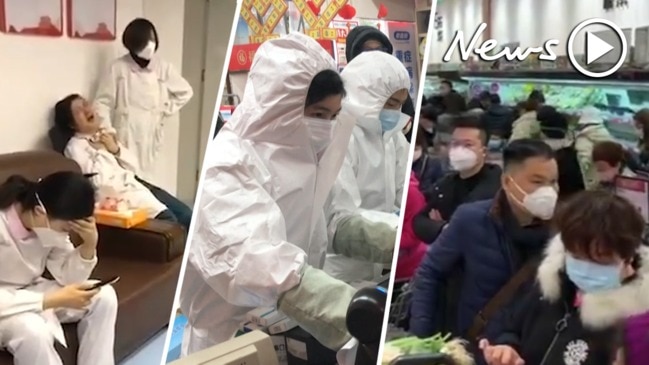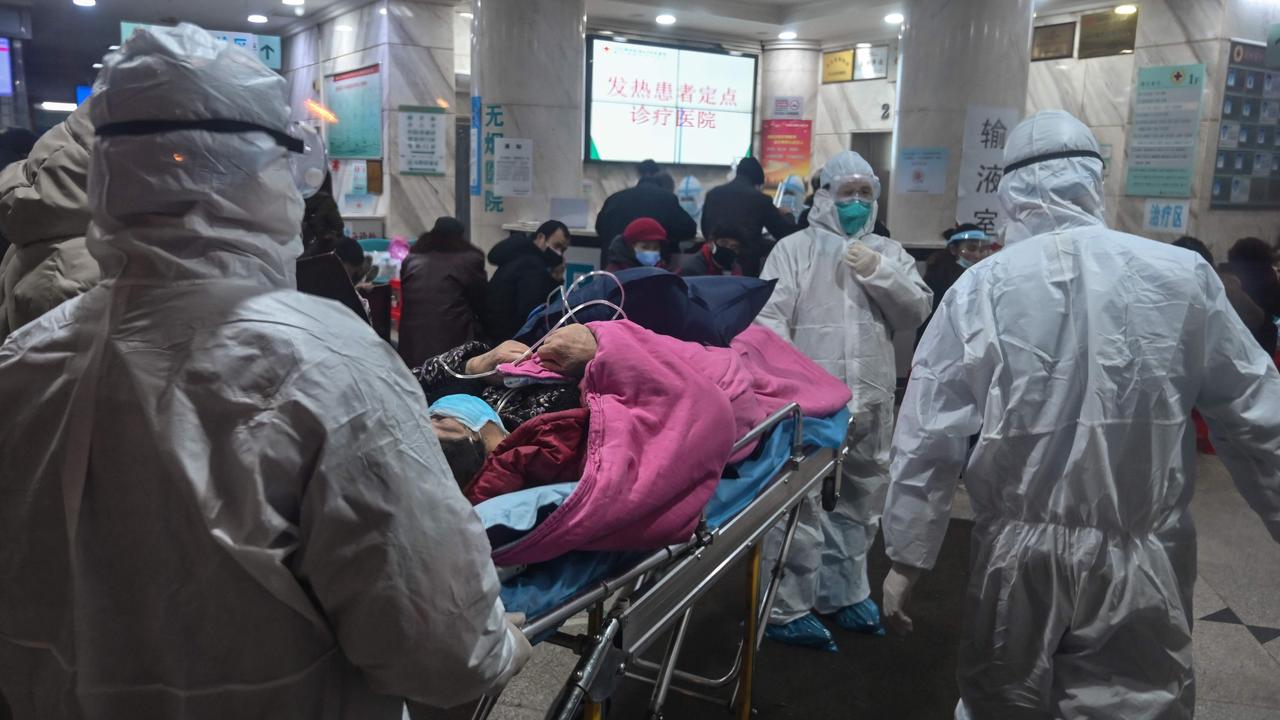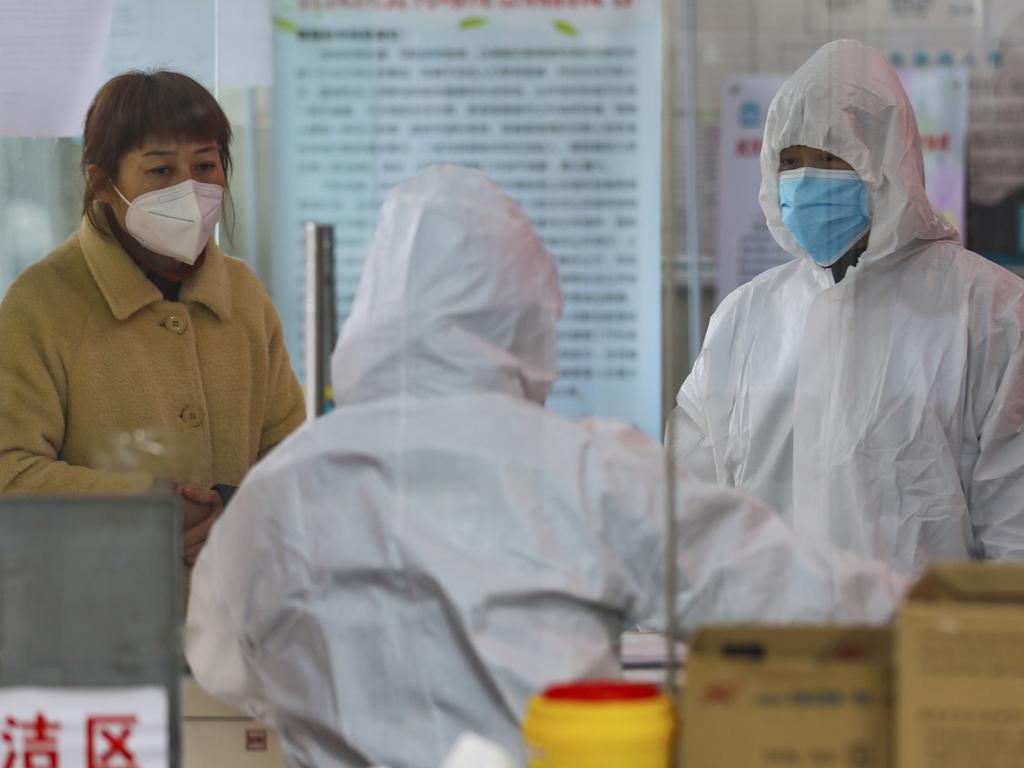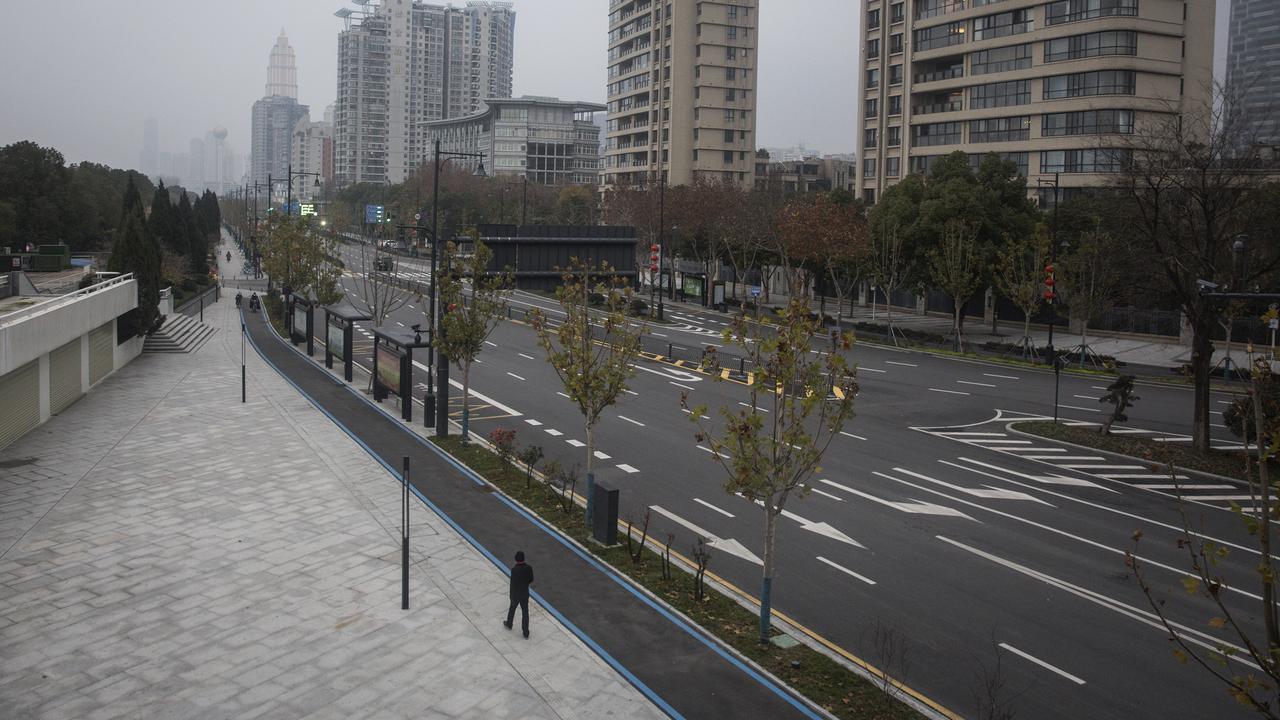Fake coronavirus warning sparks calls of racism from Queensland MP
A fake coronavirus alert warning Queensland residents to stay away from particular Brisbane suburbs has been called out as a “racist” hoax.

A Queensland MP has taken aim at a fake media release warning people to stay away from Brisbane suburbs with large Chinese populations due to an increased risk of contracting coronavirus.
Duncan Pegg shared a screenshot of the fake release on Twitter, which claims to have come from the Queensland Department of Health.
The fake release claimed the department had issued a “level 3 health warning” for the virus and advised against “non-essential travel” to Wuhan and China along with the Brisbane suburbs of Sunnybank, Sunnybank Hill, Runcorn and Eight Mile Plains.
People were also advised to stay away from “all populated areas with Chinese nationals of ratio of 1 to 3 non-Chinese Australians”.
This media release is 100% FAKE!!! FAKE!!! FAKE!!! I don't normally like to give any credence to ppl who seek to malign our community but wanted to make things clear this time.
— Duncan Pegg MP (@DuncanPeggMP) January 27, 2020
To get latest updates go to the Queensland Health website & FB page. Any questions call 13HEALTH. pic.twitter.com/mIW2XVKTH7
Mr Pegg shared his fury at the hoax, telling his followers the release was “100% FAKE”.
“I don’t normally like to give any credence to people who seek to malign our community but wanted to make things clear this time,” he wrote.
He later blasted the fake message as “racist” and said similar campaigns has been run in the past targeting multicultural communities.
“For someone to make light of this, and to put out this racist, fake media release effectively misinforms the community and causes a lot of fear and anxiety,” he told ABC radio.
A statement from Queensland Health said: “The only accurate health information regarding coronavirus in Queensland will come directly from Queensland Health”.
To avoid misinformation it urged the community to visit its page on coronavirus or the federal government version.
It isn’t the only hoax going around - NSW Health has responded to a social media post being circulated warning people not to consume certain foods or visit certain places in Sydney.
The post warns coronavirus has been found in rice, noodles, fortune cookies, onion rings, ice tea, energy drinks and wagyu beef, and that specific train stations in Sydney’s western suburbs “have shown positive readings to the virus”.
“NSW Health would like to assure the community that the locations mentioned in this post pose no risk to visitors, and there have been no “positive readings” at train stations,” they said in a statement.
There have been five confirmed cases of coronavirus in Australia, four in New South Wales and one in Victoria. Four tests in Queensland have all come back negative and the state remains free of cases so far.
Globally the virus has killed at least 81 people and infected more than 2750, most of them in China.
RELATED: What are the symptoms of the killer coronavirus?

On the weekend, China’s National Health Commission Minister Ma Xiaowei said the virus’s ability to spread appeared to be getting “somewhat stronger”. It’s now believed coronavirus can be spread before any symptoms appear.
Mr Ma said the incubation period for the virus could range up to 14 days and the virus was infectious during this time.
Australian authorities are urging anyone who has developed a fever or respiratory symptoms within 14 days of travel to China should see their GP immediately.
People are also being told to call ahead and advise the clinic of their symptoms so precautions can be taken.
Yesterday NSW Chief Health Officer Dr Kerry Chant said any child who had been in contact with a person confirmed as having novel coronavirus must not attend school or childcare for 14 days after the last contact with the infected person.
She said healthy children who had travelled to China would not be told to stay at home when classes returned, but should be carefully monitored for symptoms.
“The most common symptom is a fever,” Dr Chant said.
However, some private schools in Sydney are not taking any chances. They have told students who recently travelled to China to stay home for at least a fortnight, according to the Sydney Morning Herald.

Other boarding schools, including one prestigious campus in Brisbane, are isolating Chinese students in a separate living area for the next fortnight and would be required to undergo daily medical tests before attending classes, The Australian reported.
Some students have reportedly been asked to prove their health before returning to school in elite Sydney colleagues.
It comes after authorities confirmed on Monday that a Sydney university student, who was living on campus, became the fifth person in Australia confirmed to have coronavirus.
100 AUSSIE CHILDREN TRAPPED IN ‘DANGEROUS’ WUHAN
Meanwhile, Australian authorities are also working to extract more than 100 Australian children stranded in Wuhan, which has been locked down by Chinese authorities.
One Australian man trapped in the city has described the fear that’s gripped those who can’t leave.
“It is very dangerous,” Melbourne horse trainer Rui Severino told 9News. “It’s not a China problem, I honestly believe it’s a world problem.”
The streets of Wuhan have been empty ever since the city of 11 million was shut down.
“There is a lot of people … feeling a bit anxious and wanting to leave,” he said.
France, Japan and the United States are evacuating their citizens from the region but Foreign Minister Marise Payne said there were “limitations” to what Australian authorities could do.
“We are exploring all opportunities to ensure that when it is possible, we can assist their departure.”
RELATED: How much Australia’s economy relies on China

VIRUS COULD HIT ECONOMY
The spread of coronavirus is also expected to hit Australia’s economy hard coming after deadly bushfires over summer, which may already deliver a $1 billion hit to the tourism sector.
Coronavirus could be a second blow to the industry as China is the largest source of tourists to Australia and their citizens are also the biggest spenders, splashing out $11.2 billion a year while in Australia on holidays.
Australian universities have also come to rely on international students, with about 10 per cent of all university students now coming from China, which is worth an estimated $2 billion to Australian universities.
Last year PricewaterhouseCoopers chief economist Jeremy Thorpe released a paper on China Matters about what would happen to Australia if China’s economy experienced a “hard landing”, defined as a sudden decline in GDP growth of about 3 to 5 percentage points.
He pointed to modelling from Deloitte that predicted it could cost Australia’s national income $140 billion (7 per cent) and 550,000 job losses.
Australian shares are expected to fall when trade begins after the long weekend amid fears the spread of the deadly coronavirus will hurt global markets.




